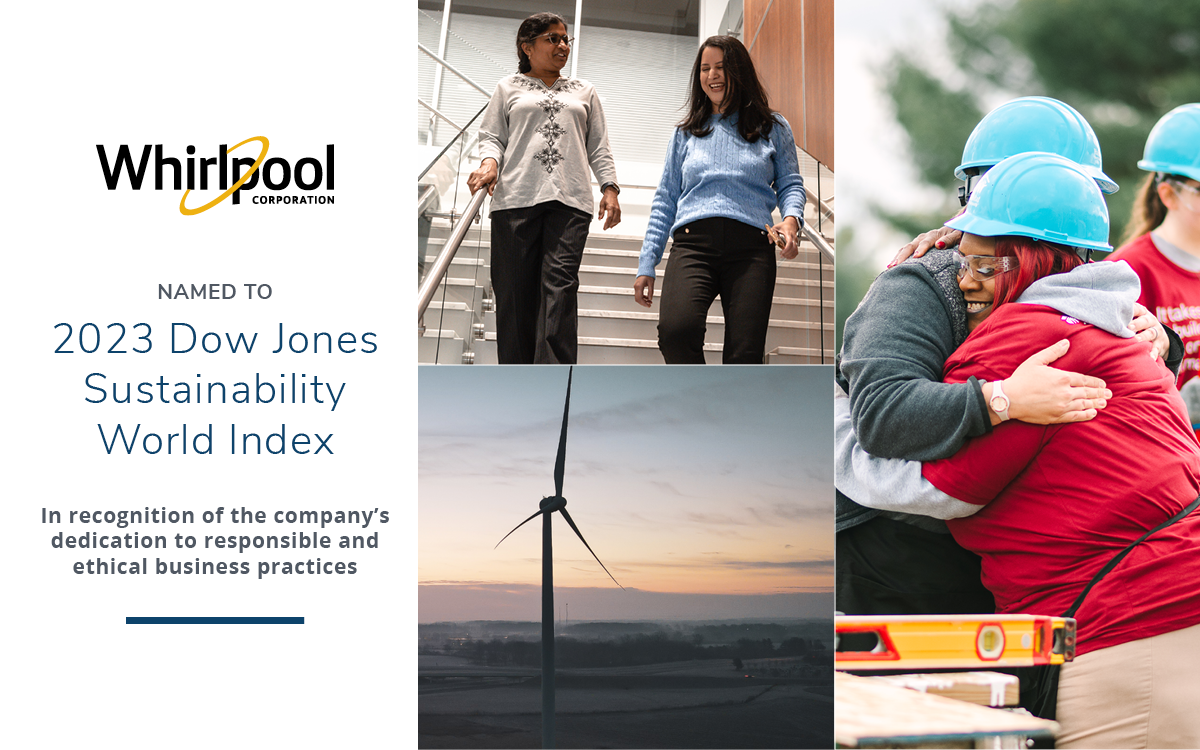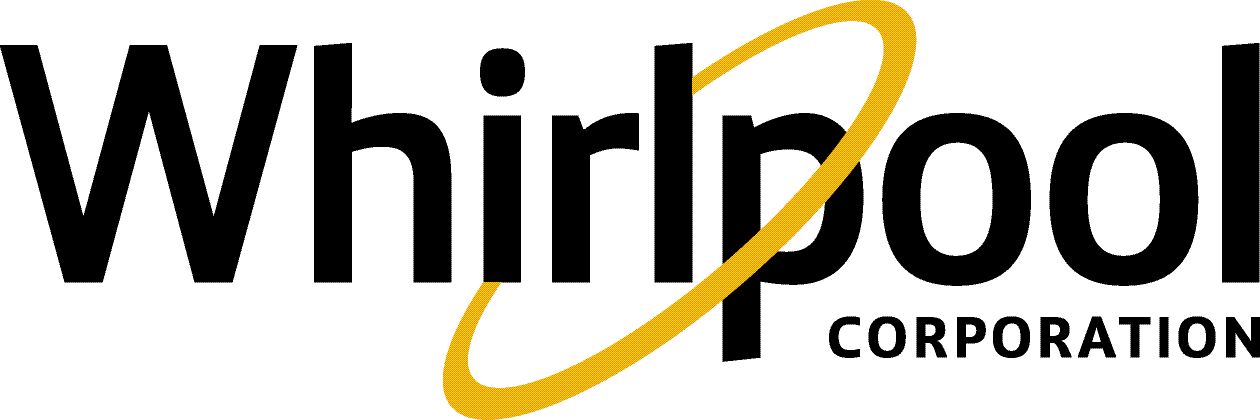Whirlpool Corporation Named to 2023 Dow Jones Sustainability World Index for Second Consecutive Year

Whirlpool Corporation announced that it has been named to the 2023 Dow Jones Sustainability World Index (DJSI) in recognition of the company’s dedication to responsible and ethical business practices. This marks the second consecutive year Whirlpool Corp. has been named to the World Index. The company is also on the North America Index for the 17th year.
“For 112 years we have held ourselves to the highest ethical standards in our business operations, and we are proud of our long history of purposeful innovation, sustainable operations and local community engagement,” said Marc Bitzer, chairman and CEO of Whirlpool Corporation. “Receiving this recognition once again validates the efforts of our thousands of employees and their dedication to our vision of improving life at home.”
For 112 years we have held ourselves to the highest ethical standards in our business operations, and we are proud of our long history of purposeful innovation, sustainable operations and local community engagement,”
Whirlpool Corp. advanced its environmental, social and governance (ESG) strategy, reaching Zero Waste to Landfill (ZWtL) gold or platinum level at 100% of its large global manufacturing sites in 2022, a goal set in 2012. Zero Waste to Landfill is part of the company’s ongoing commitment to World Class Manufacturing, the foundation for the company’s sustainable manufacturing journey. Whirlpool Corp. continues to invest in plant efficiency and waste reduction by working closely with recycling and sustainability organizations to find new, innovative ways to eliminate waste and contribute to the circular economy.
To further reduce the company’s environmental footprint, Whirlpool Corp. has increased its focus on renewable energy. In 2022, two Virtual Power Purchase Agreements (VPPAs) were activated, which, when fully operational, are expected to yield renewable energy to cover 100% of electricity consumption by U.S. plants. In addition, four North American manufacturing facilities now feature nine wind turbines that source the equivalent of approximately 2,300 homes’ electricity use for one year. For each wind turbine, one $5,000 megawatt scholarship is given in Whirlpool Corporation’s name for STEM education per year in use.
As part of their 24 year relationship, Whirlpool Corp. supports Habitat for Humanity’s BuildBetter with Whirlpool program, an initiative dedicated to building more than 250 climate-resilient and energy efficient homes across the U.S. To help further reduce utility bills for Build Better with Whirlpool homeowners, the company added high-efficiency dishwashers to the refrigerators and ranges already included in each build. Whirlpool Corp. dishwashers are three to four times more water-efficient than hand washing, saving over 2,500 gallons of water per home per year¹. In addition, Whirlpool Corp. surpassed the $125 million milestone for in-kind donated product to Habitat for Humanity International in 2023. Since 1999, Whirlpool Corp. has donated more than 241,000 major home appliances to nearly 197,000 Habitat households across the U.S.
As a result of these and other ESG initiatives, Whirlpool Corp. has received additional recognition over the past year, including being named one of America’s Most JUST Companies for 2023, one of Fortune’s Most Admired Companies for the Thirteenth Consecutive Year in 2023 as well as inclusion on the U.S. News & World Report Best Companies to Work For in 2023.
The DJSI, including the Dow Jones Sustainability World Index (DJSI World), were launched in 1999 as the pioneering series of global sustainability benchmarks available in the market. The index family is comprised of global, regional and country benchmarks.
¹Based on favorable water and energy use comparison against KitchenAid Model No. KDTM354ESS, which was compared to manual handwashing among 40 study subjects using conditions and assumptions set forth in Gabriela Y Porras et al 2020 Environ. Res. Commun. 2 021004. Assumes 215 cycles/year.
View original content here.

